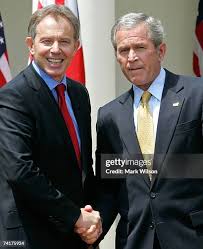The Legacy of Tony Blair in British Politics

Introduction
Tony Blair served as the Prime Minister of the United Kingdom from 1997 to 2007, leading the Labour Party to a historic victory in the general elections. His tenure marked a significant shift in British politics and has had a lasting impact on governance and international relations. Understanding Blair’s leadership style, policies, and legacy is critical to analysing contemporary British political dynamics.
Key Policies and Achievements
Blair’s government focused on various pivotal issues ranging from public health to education reform. His administration is often credited with introducing significant legislation that improved the National Health Service (NHS), increased investment in public services, and implemented the minimum wage. Blair’s dedication to social justice and progressive values resonated with a broad spectrum of the electorate and helped reshape the Labour Party’s identity.
Controversies and Criticism
Despite his achievements, Blair’s tenure was not without controversy. His decision to participate in the Iraq War in 2003 is one of the most contentious aspects of his legacy, leading to intense public debate and criticism. Blair’s justification for the war, centred around the belief that Saddam Hussein possessed weapons of mass destruction, has been widely scrutinised, raising questions about accountability and the limits of humanitarian intervention. These factors contributed to a decline in public support and left a complex legacy that continues to influence political discourse in the UK.
Post-Premiership Involvement
Since leaving office, Blair has remained an influential figure both domestically and internationally. He established the Tony Blair Institute for Global Change, focusing on policies related to governance, globalisation, and the fight against extremism. His insights are often sought in discussions of modern democracy and nation-building, prompting ongoing interest in his perspectives on leadership and strategy.
Conclusion
As Britain continues to navigate its political landscape, the significance of Tony Blair’s leadership cannot be underestimated. His policies and the controversies that surrounded them are a reminder of the complexities of governance in a rapidly changing world. For future leaders, Blair’s legacy serves as both an inspiration to strive for reform and a cautionary tale about the potential pitfalls of political decisions. Understanding the implications of Blair’s time in office is vital for students of politics and for engaging in informed discussions about current events and governance.
